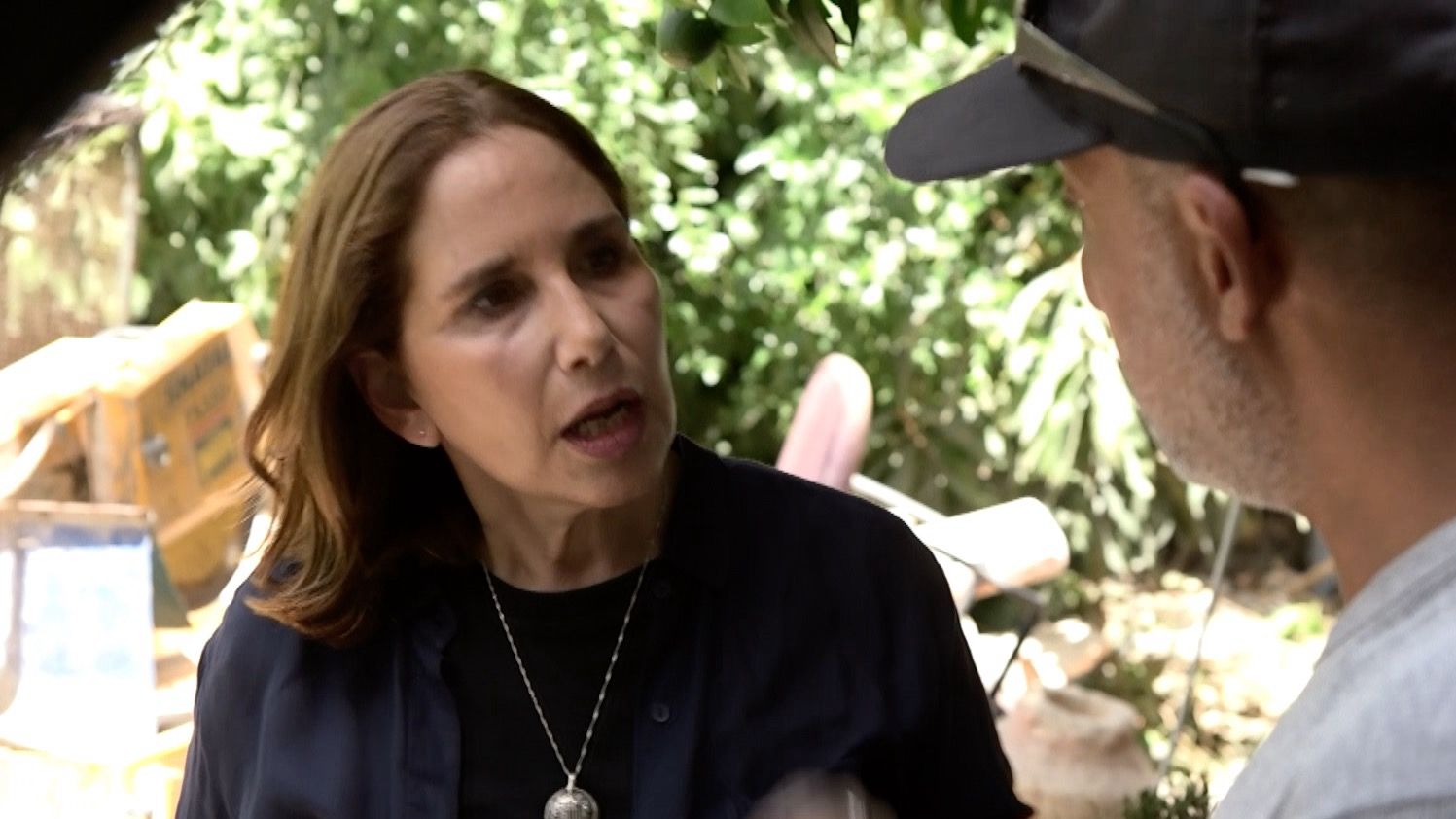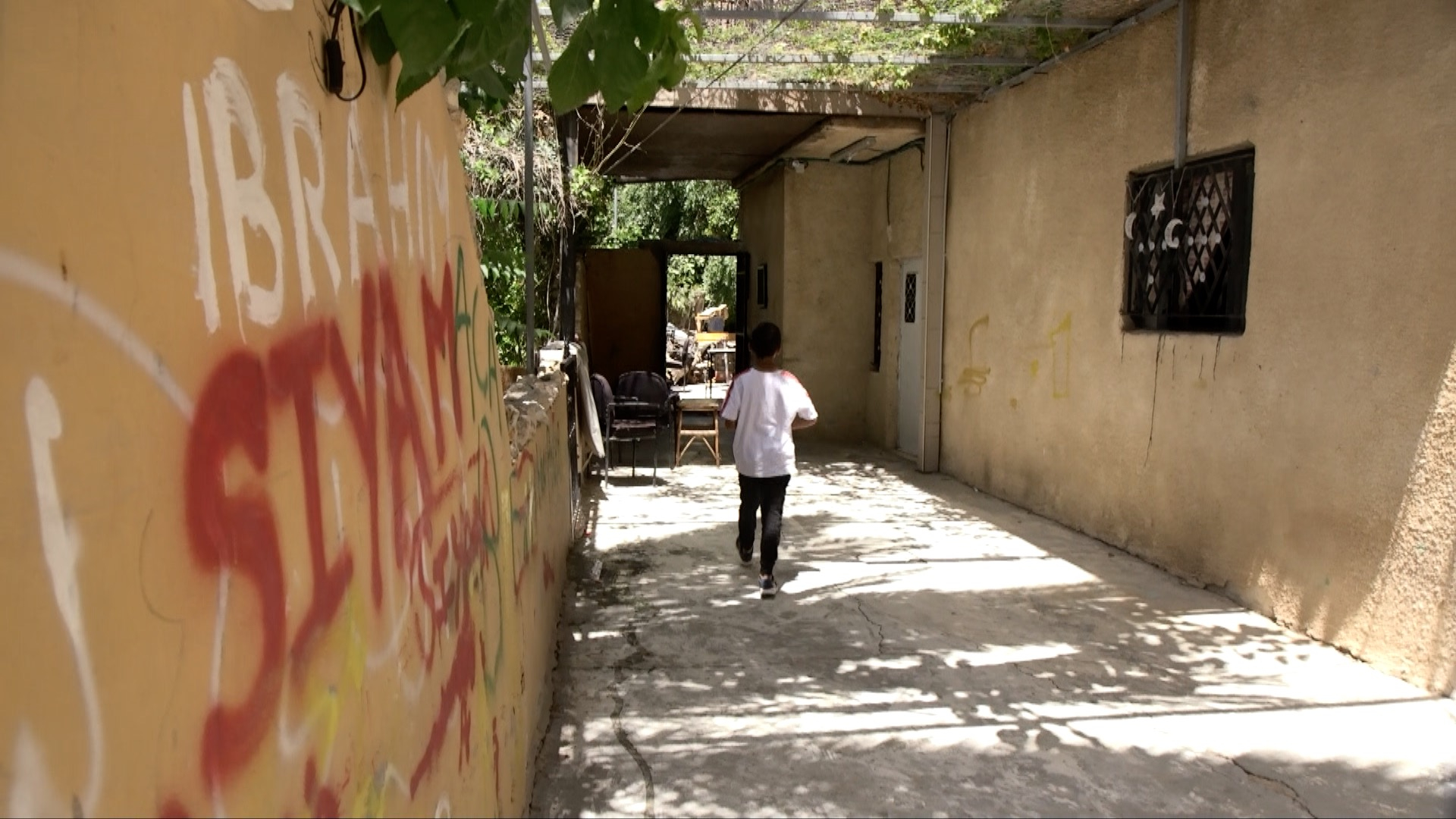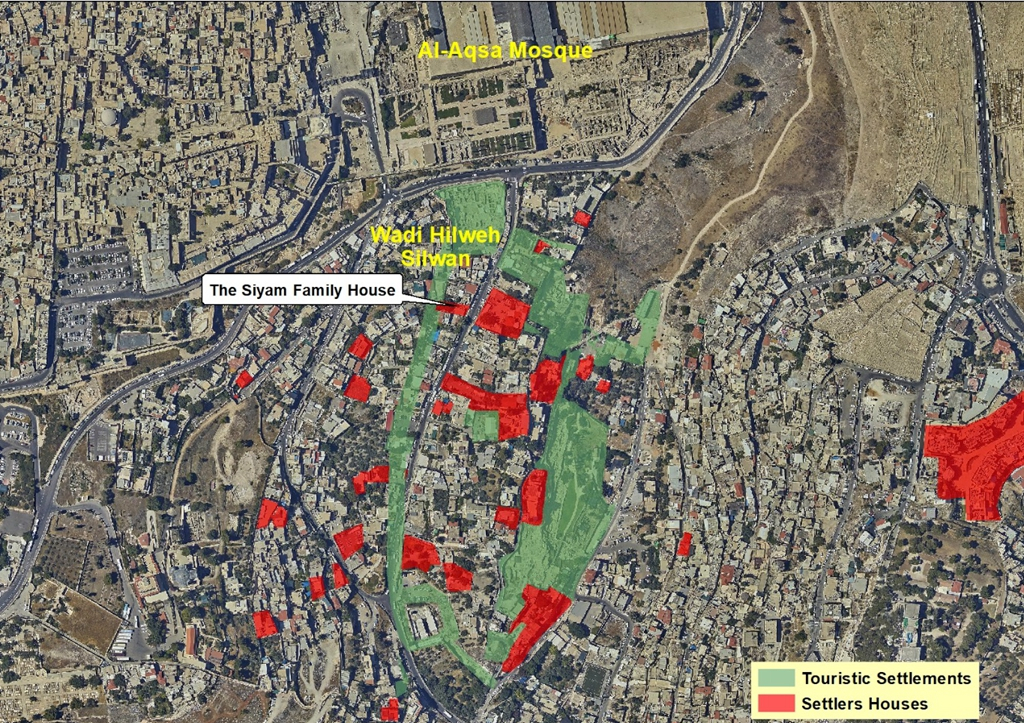

Nihad Siyam speaks to CGTN about how her family lost a court battle on homeownership of their home in East Jerusalem. /CGTN Photo
When the Siyam family lost a 25-year court battle in July over full ownership of their East Jerusalem home, family members were upset but not surprised.
"They tricked our family into handing over parts of the property. It's what they do. We would never give up family property. Never," said Nihad Siyam.
"They" refers to Elad, a hugely funded pro-settlement organization aiming to create a Jewish majority in East Jerusalem's Arab neighborhoods. Elad's funding and donors are not publicly disclosed though some believe the sources are U.S. based.
How Palestinian homes are being lost
The Siyams' case involves a court ruling allowing Jewish settlers to take over ownership of part of the family home. The result is Jewish settlers living in the same home alongside Palestinian homeowners, separated by artificial walls built on the spot.

A corridor that belongs to the Siyam family in East Jerusalem. /CGTN Photo
This type of court ruling and home division is common under Israeli property takeover policies in East Jerusalem.
Human rights group figures show more than 200,000 Jewish settlers currently live in Israeli-occupied Arab neighborhoods of East Jerusalem, which was taken over and illegally annexed by Israel in 1967.
In cases like the Siyams', Israel's high court routinely invokes a controversial state Absentee Property Law that deems properties of displaced Palestinians, often as a result of war or poverty, as "absentee" and therefore belonging to the state.
Parts of the Siyam family's home were declared absentee by the Israeli court and subsequently sold to Elad, who in turn arranged the property for Jewish settlers.
Negotiated compromise is the only solution
This is "daily, slow ethnic cleansing in Palestine" tweeted Dr. Basem Naim, Palestine head of the Council on International Relations.

A map showing the location of Palestinian settlers points out the Siyam family house in the city. /Peace Now Photo
Two days later, dozens of Israel peace organization representatives protested outside the Siyam family house and Elad's "City of David" tourist site built in East Jerusalem's Silwan neighborhood.
Weeks earlier, U.S. ambassador to Israel David Friedman endorsed Israel's annexation of the Palestinian West Bank and led an "Israel archeological" groundbreaking ceremony beneath the streets of the Siyams' home and "City of David."
Peace activists protesting the Jewish settler takeover of the Siyam family house called for an end to Israel's occupation of Palestinian land and for negotiated agreements between the sides.
"The only way forward is a two-state solution (Palestinian state beside Israel) and for a compromise and a negotiated solution. Anything less and we're doomed," said Hagit Ofran, Peace Now Settlement Watch head.
The U.S. recently unveiled the economic leg of a plan that has been formulated for Palestinian-Israeli peace.
Palestinian leaders reject the plan, saying it does not address issues of statehood or autonomy of the area.

Copyright © 2018 CGTN. Beijing ICP prepared NO.16065310-3
Copyright © 2018 CGTN. Beijing ICP prepared NO.16065310-3